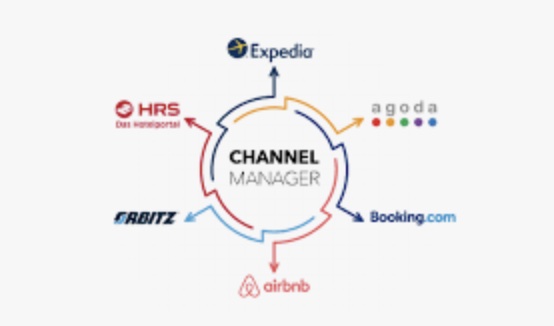10 things to check before you start your own business

|
Getting your Trinity Audio player ready...
|
You’ve made up your mind and wish to get into the world of entrepreneurship and leave behind your life as a salaried worker. You have the idea, and you already see yourself as a brilliant company head, but there is one more thing you need to do: a brainstorming session. Indeed, it is crucial to do one so you don’t forget any important steps, that are more often than not responsible for the success of your company.
Simple sometimes rhymes with best
Not everyone is Steve Jobs, and that’s totally okay. If you have a revolutionary idea, why not, but bear in mind that this will require even more knowledge on the market, the target audience, and the possible evolution of said idea.
Creating your company on a market that has no competition is almost impossible nowadays, since other entrepreneurs also have great ideas. Favour a sector where the competition is successful. Why? Because if there is competition, then it surely means there is a space for you. It will then be up to you to differentiate yourself, for that is the key to open the door of success! Be careful though, check in advance that your idea is not in decline.
Follow a coaching program
Before you start your project, why not follow a coaching program made by a professional in the sector you want to enter? An hour or two are enough to clarify some key aspects of your project. The external opinion of the professional will allow to:
- Approve the positive aspects of your project
- Clarify elements that are a bit obscure
- Give new ideas
Taking the time to study a project from A to Z is crucial. Don’t hesitate to write down the specifications of your project, that you can update as needed.
Present your idea to an audience
The goal here is to check that your idea is understandable. It needs to be clear, concise, and completed, so you can present your project in only a few sentences. This exercise will prove useful when you have to pitch your idea to a banker, an investor, a chamber of trade, etc.
Write down your presentation, say it out loud to friends or family, and improve it if they don’t understand your point. Once your pitch is at its best, learn it, and you’ll use it to present your project.
Get info of the competition
The competition will give you lots of information regarding your own project. It’s not about copying what others have done (you could get into trouble for that), but to draw inspiration from them, and try to do even better.
Find out about the way they work, the way they communicate. Are they active on social media? Do they have a physical shop or is it online only? Create a note card for each competitor, or make an Excel sheet where you can enter the info of all the competitors so you can then compare them (and draw inspiration from them while you’re at it).
Create an effective business plan
The financial aspect is the sinews of war of your project. Therefore, it would be advantageous to see an accountant so they can validate your business plan. If you have to seek out an investor, they’ll ask you to see an accountant anyway, as they won’t make do with a simple business plan made on Excel, but will ask for legal documents with a lot of details (break-even point, earnings before interest, liquid assets, etc.)
Know the market
When you’re done with studying the competition, you’ll need to know more about the market itself. Find out about the consumers’ habits, create your personas, and try to know everything there is to know about your future clients.
You can also look for the average shopping cart of the clients. This could give you an idea of the turnover you could make.
Surround yourself with professionals
If your idea contains an in-depth technical aspect, you might need to surround yourself with professionals who will believe in your project. This is slightly similar to the concept of start-ups that hire highly skilled individuals and offer them a share of the society.
This is where the quote “1 + 1 = 3’ shows its meaning. The ideas of one resonate in another person, and they amplify when they’re shared.
Set a deadline
The SMART method mentions that every project needs a deadline. Why? Well simply because setting a deadline allows you to:
- Take on actions regularly
- Think ahead of time and not last minute
- Avoid procrastination
Be careful though, it isn’t about putting pressure on yourself. Set the deadline far enough in time so you can prepare everything you need to do. To this end, you can write down specifications and why not use a reverse schedule that will allow you to see the project in its entirety.
Is your idea feasible?
Entrepreneurs often think that they’ll earn money quickly with their project. If it is true for some, it takes time for the majority to make their business profitable.
Doing all the math alone isn’t always easy. You could, if you felt the need to, get in touch with an activity and employment cooperative. This would allow you to be accompanied by a professional and to launch your activity serenely, while still being able to have unemployment benefits.
Think about your status
Choosing the microenterprise status is the easiest solution, but it isn’t the best when it comes to social security cover. It can be perfect when you start but it could be better to upgrade to a more protecting status.
Take the time to check the benefits of each status and don’t hesitate to get in touch with professionals who will be able to guide you and direct you towards the status that’s best suited for you and your business.
Bonus: are you an entrepreneur at heart?
While there are exceptions, more often than not, we’re not born entrepreneurs, we become entrepreneurs. Starting your own business sometimes means:
- Sacrifices in your personal life
- Time before it becomes profitable
- Having well-thought-out ideas
- Accepting a loss of revenue for a bit of time
- Reassessing yourself and building up your self-confidence
- Being able to negotiate with your banker
- Knowledge in business management
- Knowledge in IT
You’ll have guessed it, being an entrepreneur means being everything at once: an expert in your sector, knowledgeable in accounting, communication, organised…
If you know that there is a risk you might no be able to do certain things, think about being accompanied. If you really care about your project, being surrounded by the right people, even if it costs a bit of money, can be what will make you successful.






